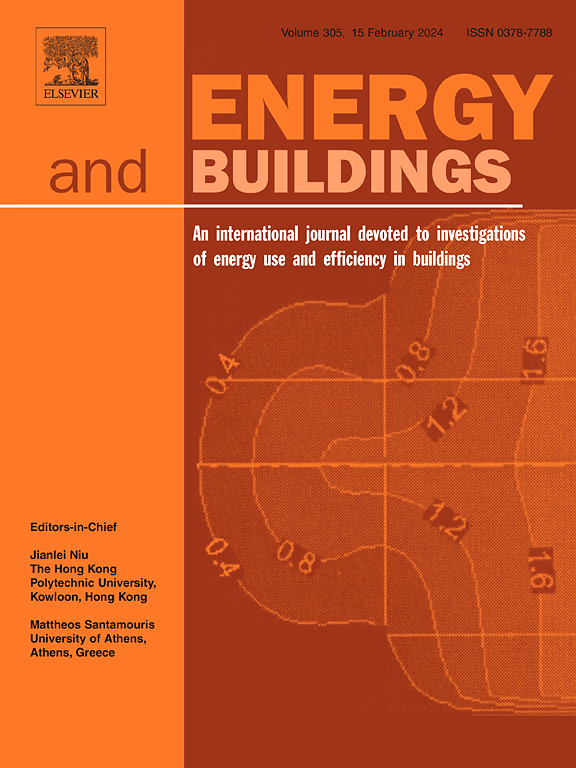气候变化对建筑能耗的非线性影响:以金砖国家为例的第二代模型
IF 7.1
2区 工程技术
Q1 CONSTRUCTION & BUILDING TECHNOLOGY
引用次数: 0
摘要
虽然有努力增加可再生能源的份额,但许多发展中国家在生产中仍然依赖不可再生能源的消耗。因此,这项研究试图确定气候变化对燃料能源消耗的影响。本研究基于1970年至2023年金砖国家的二手数据。采用混合平均组规范的第二代面板分位数ARDL (Auto Regressive Distributed Lag,自回归分布滞后)进行非线性分析,发现气候与能源需求的长期关系呈u型。这意味着,随着全球变暖的不断加剧,化石燃料的能源消耗先减少后增加。人口密度和全球化等控制变量是增加化石燃料能源消耗的原因,而教育和行业技术进步正在减少化石燃料能源消耗。随着教育作为调节因素的作用的纳入,u型气候能源关系被翻转为倒u型,这意味着纳入气候变化教育可以减少化石燃料的能源消耗。研究结果强调了气温上升如何增加住宅、商业和工业建筑的能源需求,而这些需求通常是使用化石燃料来填补的。本文章由计算机程序翻译,如有差异,请以英文原文为准。
Nonlinear climate change effects on building energy consumption: a second-generation modeling with moderation case of BRICS countries
While there are efforts to increase the share of renewable energy, many developing countries still rely on nonrenewable energy consumption in production. So, this study tried to determine the impact of climate change on fuel energy consumption. This study is based on secondary data for BRICS countries from 1970 to 2023. According to nonlinear analysis using 2nd Generation Panel Quantile ARDL (Auto Regressive Distributed Lag) with pooled mean group specification, long-run coefficients indicate a U-shaped climate and energy demand relationship. It implies that fossil fuel energy consumption first decreases and then increases with an incessant increase in global warming. Control variables like population density and globalization are responsible for increasing fossil fuel energy consumption, while education and technological improvement in the industry are decreasing it. With the incorporation of the role of education as a moderator, the U-shaped climate energy relationship is flipped to an inverted U-shaped, implying that incorporating education regarding climate change can reduce fossil fuel energy consumption. The findings highlight how rising temperatures increase residential, commercial and industrial building energy demand which is generally filled using fossil fuels.
求助全文
通过发布文献求助,成功后即可免费获取论文全文。
去求助
来源期刊

Energy and Buildings
工程技术-工程:土木
CiteScore
12.70
自引率
11.90%
发文量
863
审稿时长
38 days
期刊介绍:
An international journal devoted to investigations of energy use and efficiency in buildings
Energy and Buildings is an international journal publishing articles with explicit links to energy use in buildings. The aim is to present new research results, and new proven practice aimed at reducing the energy needs of a building and improving indoor environment quality.
 求助内容:
求助内容: 应助结果提醒方式:
应助结果提醒方式:


